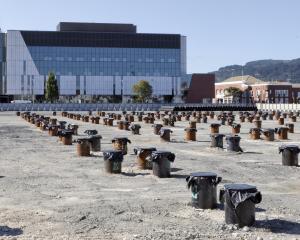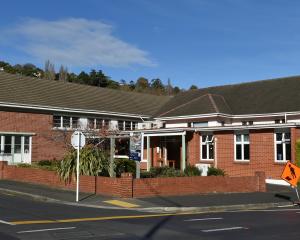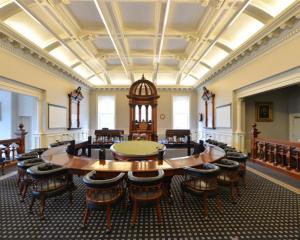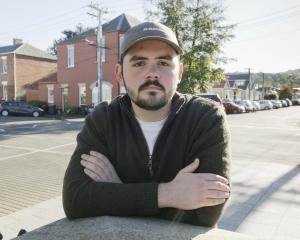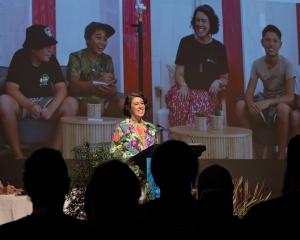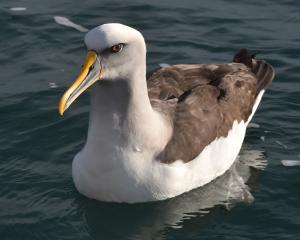Mark Orton has been around the world and back again as a freelance videographer, but he got his start in Dunedin, at the University of Otago. Carla Green reports.
Mark Orton's studies at the University of Otago began with a crisis.
''I got to Dunedin and, basically, had a panic attack and decided not to go through with it,'' he said.
''I drove down to the Catlins, and basically I decided that was pretty ridiculous - what was I going to do? ''I had no job; all I owned [was] in my car. So I just decided I might as well go through with it. Long story short, I started at Otago in 2001.''
Now, Mr Orton is a freelance videographer and editor who flies around the world on contract work.
But back in 2001, he was 29 years old, and uncertain about what to do next. He had just moved back to New Zealand after years overseas in the United Kingdom.
''I basically decided on a whim that I hadn't gone to university, which was probably something that I'd always regret, seeing as no-one in my family had even been to university,'' he said.
''I'd always had a bit of interest in cinema, so I just decided why don't I make it a bit interesting and just select a whole lot of subjects I like the sound of, and see what happens after that.''
He moved into ''a kind of hippy household'' in Mornington. The house was cold, and his flatmates were vegetarian. It was ''interesting'', he said.
''Basically, I had to live a vegetarian lifestyle for that first year, because those guys didn't eat meat,'' he laughed.
Perhaps because of his age, Mr Orton was not a typical Otago student.
He spent much more time in the community, he said. He bought a house in his second year. He had done ''quite well'' working in sales in the UK.
''I didn't know if I wanted to commit myself to Dunedin, at that stage, but I just decided I couldn't go through the trauma of living in that flatting situation. I wanted to take control of it.''
Mr Orton finally settled on a 12-month postgraduate diploma in natural history filmmaking at the university.
He and the other students were ''pretty much left to our own devices'', which was a good thing, he said.
''I actually think that this fostered better films and skills in the students, as we weren't having our hands held and told what to think every step of the way, so when we made mistakes, we had to figure out how to solve them.''
Since then, the diploma had become a two-year masters programme, which Mr Orton said was a mistake.
''It took away the pressure-cooker environment of having to learn everything and make a film in 12 months.''
It was in that high-pressure environment that he made Prints of Darkness, a film about a big black cat rumoured to be living in Canterbury. He still got asked about the film today, he said.
But his big break came immediately after finishing the diploma, when he was one of two graduates selected as an intern for six months at NHNZ.
''Fortunately, in that six months, I met a number of producers in the building and they were kind enough to keep me on. But I was freelancing, so nothing was secure.''
It took Mr Orton a while to get to where he is now, with freelance contracts rolling in to shoot television shows all over the world.
And he cannot imagine anything he would rather be doing.
There were a couple of jobs Mr Orton held particularly dear. One was filming a television show for Al Jazeera, The Slum, in the slums of Manila, in the Philippines.
The series aired in a six-part documentary series on Al Jazeera's website and its international television channels, which Al Jazeera says are broadcast to 220 million households worldwide.
''We'd follow [people] over the period of six months and watch their lives unfold ...,'' he said.
''There was a ballerina, a boxer, but there was also a family that scavenged through garbage, there was the local person that controlled the electricity.
''The slum area that we were filming in Manila is notorious; it's massively populated. And it's just completely, completely unlike anywhere you've ever been.''
Mr Orton said he felt out of place going into the slum. People often seemed confused about what he was doing there, he said.
''I've got long red hair. I couldn't have been more out of place.''
Another job was filming pandas last year in ''the wild'' of Sichuan province, China.
''China is a fascinating country and I had some great colleagues that I worked with, my Chinese colleagues, and the food was just absolutely out of this world,'' he said.
''And, of course - the pandas. You just don't ever get a chance to get close to one of the world's most loved and problematic animals ...
''People pay a fortune to travel round the world to go and see pandas in China. And I was getting up every day and going to work.''
During the course of his career, Mr Orton has seen hundreds of incredible things, all in a day's work.
He has edited, directed, produced and filmed on projects for everyone from National Geographic to TV2 to American satellite channel A&E.
He worked on Masterchef in Auckland, and tailed the rescue team based in Wanaka for a year, jumping in the chopper with them every time they went out on a job.
The panda project is to be aired on Discovery and France5 in the coming months.
If possible, Mr Orton would like to keep doing what he is doing - working from his home editing suite in Clyde, jumping on a plane to go and film at a moment's notice.
But he knows the television industry is struggling and worries his job may not exist in 10 years.
''The industry's really difficult right at the moment,'' he said.
''No-one really knows how to make a buck out of it ... I'm scratching my head a bit at the moment.
''I'd like to keep doing this, but I'm a realist as well. I realise ...
in 10 year's time, the kind of television that I'm working on at the moment just might not be getting funded anymore.''
But for now, he says, he will keep on keeping on.
''Put it this way: I'm not selling my gear,'' he joked.


